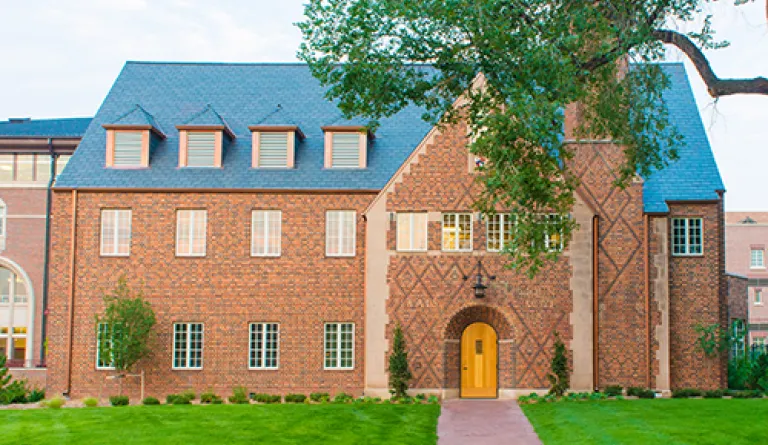Law Day 2012: No Courts, No Justice, No Freedom: Time to 'Cowboy Up,' Protect Our Courts

This article originally appeared in the May edition of The Docket, a publication of the Denver Bar Association.
Imagine a country without courts—where the legislative and executive branches of government hold sway. Imagine that the legislative branch makes the laws, and the executive branch has an administrative system for determining both criminal and civil liability and enforcing consequences. What would change? Why would it matter?
Most important, we would no longer have the rule of law. We would have the rule of men. The Constitution would be subject to the whims of legislators. The rights of minorities (any minority) and individuals would be swept aside by the rights of the majority—from search and seizure without probable cause, to the enforcement of basic contract rights; from freedom of speech and due process of law, to private property rights—they would all be subject to sometimes slow and sometimes precipitous erosion, swept down the stream of majoritarianism and bureaucracy.
There would be no transparency and no access to trial by jury. Trial by jury is critical to democracy because it invests citizens in the system, provides checks and balances, and offers a community voice on what is and is not acceptable conduct.
In short, this country would no longer be a constitutional democracy.
But that dire picture is just sensationalism, right? It is hyperbole to say that justice is in jeopardy, right? We have bigger problems that require our attention, right?
Not right. Remember the "boiling frog story," which proposes that if a frog is placed in cold water that is slowly heated, it will not jump out of the pot, but will rather eventually be cooked to death? The temperature of the water that affects the courts is on the rise, and we are the frogs.
There are a number of factors heating up the water. First, there is a profound lack of understanding of the courts. Polling data routinely demonstrate that people do not understand our three-branch system of government with checks, balances, and a separate role for the courts. People do not protect what they do not understand.
Second, there is a lack of confidence. The Harris Interactive Survey in 2011 shows that only 19 percent of the respondents have a great deal of confidence in the courts and the justice system. That number is down 5 percent from 2010. More people—23 percent—have "hardly any" confidence in the courts than those who have a great deal of confidence.
More and more money is being poured into state supreme court races in the states that hold contested elections for those seats, and—no surprise—the citizens of those states have even less confidence in their courts. There are other reasons for declining confidence: costs, delay, and widespread perceptions that the courts are not truly accessible.
Third, there is a lack of funding for the courts. In 2011, 57 percent of all state court systems suffered budget cuts of up to 12 percent. Those cuts came on top of cuts in 2010 and 2009. In Colorado, we have been in budget crisis mode for the past five years, with no salary increases and staffing shortages. In State of the Judiciary reports across the country, the impact of the budget woes becomes painfully clear. In Texas, "today the courthouse door is closed to many who have lost their jobs, to military veterans who are on the streets, to women who suffer physical abuse." In Connecticut, "I feel it is important to let you know that, if there are ultimately more significant cuts or layoffs, the branch that we know today will look very different in the future." And, in Hawaii, "justice is not something that should be rationed. The costs of attempting to do so will be far higher in the long run, than any savings that can be realized now." The Los Angeles Superior Court system is laying off 350 employees in June and restructuring 50 courtrooms.
So, justice truly is at risk. And, the solution, in Western slang, is to "cowboy up" and fix it. Attorneys, judges, and citizens must seek to understand the courts, support them, and work hard to improve them.
We are ahead of the curve in Colorado, in terms of fixing problems. The Colorado Supreme Court has implemented a pilot project in five Denver metropolitan counties for business cases, designed to test solutions for cost and delay in those cases. Various districts are experimenting with early neutral evaluation of domestic relations cases to provide mental health and attorney assistance to high-conflict parties who need to develop a parenting plan that will be in the best interests of their children before the system polarizes them. Additionally, Colorado has implemented electronic filing to keep costs down and make the system more efficient. The transparency of caseload information has been improved through statistical reports. The Colorado courts were on the forefront of the "jury reform" movement, which is an effort to reorient the jury system such that the jurors get the best possible information about the process and the case on which they are sitting, in a way that maximizes their time and values their service. Probate reform ensures the courts are monitoring ongoing protective proceedings involving at-risk adults or minors. In an effort to reduce crime rates, jurists have employed evidence-based sentencing.
That is the good news, and speaks highly of the bench and bar in Colorado. But we have to work even harder to support, defend, and improve the courts. Justice is in jeopardy across our country.
If we have no courts, we will truly have no freedom. And, we will have no one to blame but ourselves.
